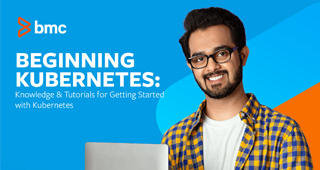Thanks to the popularity and widespread use of Kubernetes, Cloud Native Computing Foundation (CNCF) and the Linux Foundation created two Kubernetes certifications to standardize the training and certifications for engineers who want to expand and illustrate their knowledge on the platform.
This article will explain the two Kubernetes certifications and exams, explore benefits to certification, and describe how to get certified.
What are the Kubernetes certifications?
There are two Kubernetes certifications: the Certified Kubernetes Administrator (CKA) and the Certified Kubernetes Application Developer (CKAD).
Candidates are awarded the certification upon passing the exam. In order to pass these exams, a candidate must show their understanding of Kubernetes and how its components tie together. All the questions are practical, not multiple choice, so you cannot simply guess the answers.
Certified Kubernetes Administrator (CKA)
The CKA tests your ability to deploy and configure a Kubernetes cluster as well as your understanding of core concepts. Candidates have three hours to take the exam and must score 74% or higher to earn the certification.
The CKA exam tests the following areas:
- 8% – Application lifecycle management
- 12% – Installation, configuration & validation
- 19% – Core concepts
- 11% – Networking
- 5% – Scheduling
- 12% – Security
- 11% – Cluster maintenance
- 5% – Logging/monitoring
- 7% – Storage
- 10% – Troubleshooting
Certified Kubernetes Application Developer (CKAD)
The CKAD tests your ability to deploy and configure applications running on the Kubernetes cluster and your understanding of some core concepts. You’ll have two hours to complete the CKAD exam. Scoring a 66% or higher means you’ve passed.
For the CKAD exam, you will be tested in the following areas:
- 13% – Core concepts
- 18% – Configuration
- 10% – Multi-container pods
- 18% – Observability
- 20% – Pod design
- 13% – Services & networking
- 8% – State persistence
Benefits of Kubernetes certification
Why bother taking a Kubernetes certification exam? If it seems like a lot of work, you’re right. But that hard work is worth it for plenty of folks. Engineers with k8s certification reap plenty of benefits:
- Stand out from the pack. A Kubernetes certification makes your resume look good and stand out from the competition. As companies rely more and more on k8s, your expertise will be an immediate asset.
- Get a pay bump. A top certification like the CKA or the CKAD gives you mighty potential for a better salary. Passing these exams is not an easy task, so companies seeking k8s engineers are willing to pay more because the certifications show that you’re not only experienced, but you truly understand the platform.
- Achieve personal growth. Passing these exams is rewarding on a personal level: you sacrificed free time and fun to study and prepare, so passing the exam is rewarding in itself. Next, you may even move onto another skillset to focus on.
- Become a Kubernetes expert. After passing the exam, Kubernetes concepts become simple and almost second-nature. After the frustration you may experience as a k8s newcomer, the pleasure of understanding it is worthwhile and priceless.
- Diversify and expand your knowledge. The k8s architecture was built on 12 factor app principles, so by becoming k8s certified, you’ve got a good foundation in the 12 factor app principles, which goes supports a variety of SaaS applications. Talk about growing your skillset.
Preparing for Kubernetes certification exams
Like any exam, preparing is not easy but it isn’t rocket science. You’ll need plenty of time both to study and to practice—many successful engineers take about four months to prepare, studying for 2-3 hours daily. Remember that the CKA and the CKAD aren’t the same. The CKA covers a lot of cluster-related components, installation, and configurations. The CKAD, on the other hand, doesn’t go into cluster configurations, but does require full understanding of how clusters work.
Below, I have listed steps for preparing for the exams.
- Get familiar with Kubernetes and what makes up a cluster.
- Try installing a cluster from scratch. I used Kelsey Hightower’s Kubernetes the Hard Way, which is probably the best tutorial on how all the components come together.
- Understand the concepts and how to actually use the cluster; start with this page for plenty of documentation on k8s concepts.
- Follow the tasks provided by Kubernetes here and here. This step provides actual use cases and examples.
- Experiment with kubectl to parse results. This page has helpful commands for advanced parsing and Kubernetes also has related information.
- Watch this webinar series on concepts that apply to both exams.
- Practice, practice, practice. Without hands-on experience and practice working with and deploying to a cluster, the exams will be very difficult to pass. A good way to practice: use a test application and deploy that to your running cluster, then try to achieve certain goals using that application. There are test applications aplenty if you do not have a current one. Check out Minikube if you don’t have a running k8s cluster.
Making the decision
If you’re still debating whether to dive in on a k8s exam, remember that the CKA and the CKAD are both useful and highly sought-after certifications. They’ll boost your resume and improve your opportunities. Though the test is difficult, it’s for a good reason: the Kubernetes platform requires deep theoretical understanding as well as actual use in a production environment—passing the exam means you can be confident that you’ll apply that knowledge in a real-world scenario.
One last tip: when you register for the exam, you get one free retake. Failing the exam is possible, but the free retake means you can get familiar with the type of questions asked and better prepare for the second go-round. Good luck!






